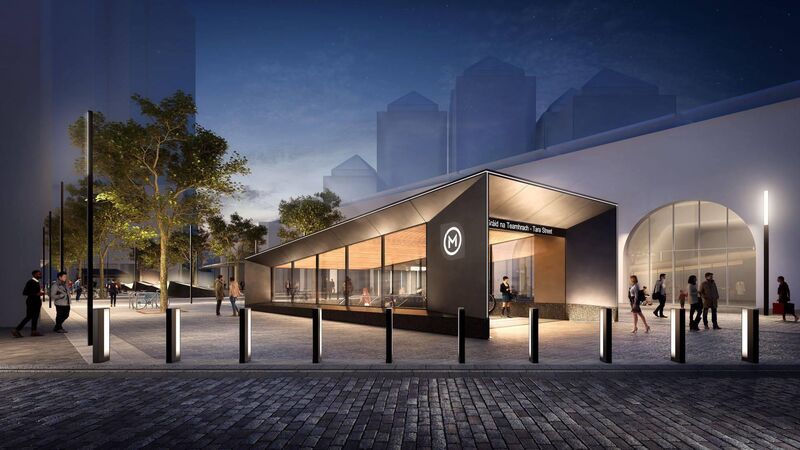Delayed Metrolink could cost as much as €12.3bn

An artist's impression of the Tara Street entrance at night for the Metrolink rail project.
Ireland’s Metrolink could end up costing as much as €12.3bn, making it the country’s most expensive ever infrastructure project, according to projections by the state bodies responsible.










